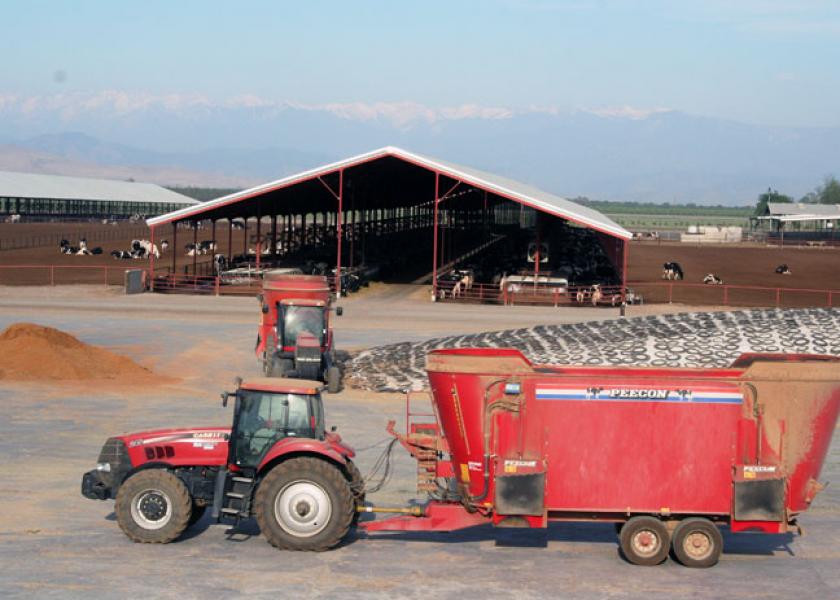Ready for a Crisis?

Advance preparation will save you valuable time if and when an emergency strikes your farm.
In May 2010, the animal rights group Mercy for Animals released a video taken by one of its undercover operatives at the Ohio farm of dairy cattle broker Gary Conklin. The edited footage showed cows and calves being physically abused by one of Conklin’s then-employees.
A media firestorm erupted, with nearly 1,000 media calls to Conklin in the first 24 hours after the video’s release. His family and business received threats of violence. Law enforcement was called in.
Months later, Conklin and all but the abusive employee were cleared of any wrongdoing. That worker was arrested for animal cruelty, did jail time and paid a substantial fine. His whereabouts today are unknown. Five years later, Conklin describes the crisis as devastating. It cost him his milk market and put him in the crosshairs of animal activists.
Conklin’s catastrophe may be extreme, but the reality is that you too could be the victim of a crisis. It could arrive in the form of a fire, flood, tornado or work-place fatality. Your farm could be responsible for a manure spill or pesticide drift. A product recall traced to your operation could ruin your brand’s reputation and market outlets. A disease outbreak could shut down your livestock operation. In some instances, a crisis could result in criminal charges or fines.
You can minimize potential damage by preparing in advance, says Jane Dukes, director of Food & Consumer Communications with MorganMyers, a strategic communications firm.
 |
| Jane Dukes |
“A preparedness plan could and should cover a variety of unanticipated issues that could arise on the farm,” says Dukes, who spent 13 years handling crisis communications for McDonalds and its owner/operators before joining MorganMyers.
"The bottom line is thinking through the possible scenarios you might have to deal with and putting a plan in place in advance to deal with them,” she says. “This advance preparation will save you valuable time if and when the emergency strikes.”
Conklin agrees. He didn’t have a crisis plan when the animal-abuse video broke. Ill-prepared, he hired a communications firm within hours to handle the firestorm.
“All farms, dairies and livestock operations need to have a plan in place,” says Conklin. “Once a crisis breaks, things happen very quickly. As it starts unfolding and the investigation begins, you still have to care for your animals and keep your farm moving forward.”
How can you prepare?
Establish a crisis communications plan. Lay the groundwork now for identifying what constitutes a crisis for your business and the steps required to respond. Designate who will be in charge and who your core response team will be in an emergency.
“The person who is in charge of handling a herd health epidemic may not be the same person who is in charge if there is a manure spill,” Dukes says. “There is value in thinking through the possible scenarios that could occur on your farm and asking yourself, ‘Who would I call? Who would I trust to give me advice in this situation?’ You can probably anticipate 99% of the unanticipated situations in one brief brainstorm.”
Consider how you’ll notify your response team in a crisis. Will it be by telephone? Mobile phone text? Email?
Build a key contacts list in advance, Dukes advises. It should include:
- Response team members
- Your cooperative, processor, commodity hauler or shipper, veterinarian, grain elevator, feed mill or other businesses you regularly deal with
- Key employees
- Local officials
- Industry associations
- Media contacts
Train your employees on your plan. It’s essential they understand how to respond in a crisis. They should know who to turn to and where to find important contact information, tools and resources quickly in an emergency.
 |
| The news media will react quickly to a crisis. They'll expect reasonable access to you and a timely response to inquiries. |
Practice news media training. As Conklin learned, the news media react quickly. They will expect reasonable access to you and a timely response to inquiries. Prepare to respond with three key messages. Be concise, professional and courteous.
“When you’re delivering your messages to the news media, remember journalism’s 5Ws and H – who, what, when, where, why and how,” Dukes says. “Have answers to those questions.”
Install video surveillance cameras. Having your own footage can help you protect yourself and uncover more information about what might have happened. Video cameras at livestock operations can be particularly helpful in revealing the full context of an incident alleging animal abuse. “You can’t manage what you can’t measure, and video surveillance is one tool, as is dropping in unexpectedly and walking the barns to check on your animals and your employees,” Dukes says.
Dealing with News Media
Be prepared to deliver three key messages when responding to news reporters during a crisis, says Jane Dukes, crisis communications expert with Morgan Myers. An example:
- “We have a strong animal health program in place and have never before had a disease outbreak.”
- “We are awaiting the results of an investigation by state and federal officials on the disease strain and source, and we will notify you when we receive the results.”
- “We are working with local, state and federal agencies to ensure this does not happen again.”
Dukes also offers these tips for responding to news media:
- Be prepared.
- Remain calm.
- Take control of the interview early.
- Satisfy a reporter’s questions and steer your responses to your key messages.
- Maintain eye contact for credibility.
- Challenge false accusations that may be raised. Don’t repeat the negative.
- Tell the truth.
- If you don’t know the answer, say so. Don’t make up answers, guess or speculate.
- Repeat important information.
- Explain why you can’t be more specific. For example, “We’re awaiting results of an investigation.”
- Don’t use jargon or technical terms.
- Don’t say, “No comment.”
- Don’t go off the record or let your guard down.
- Don’t argue with the reporter.







